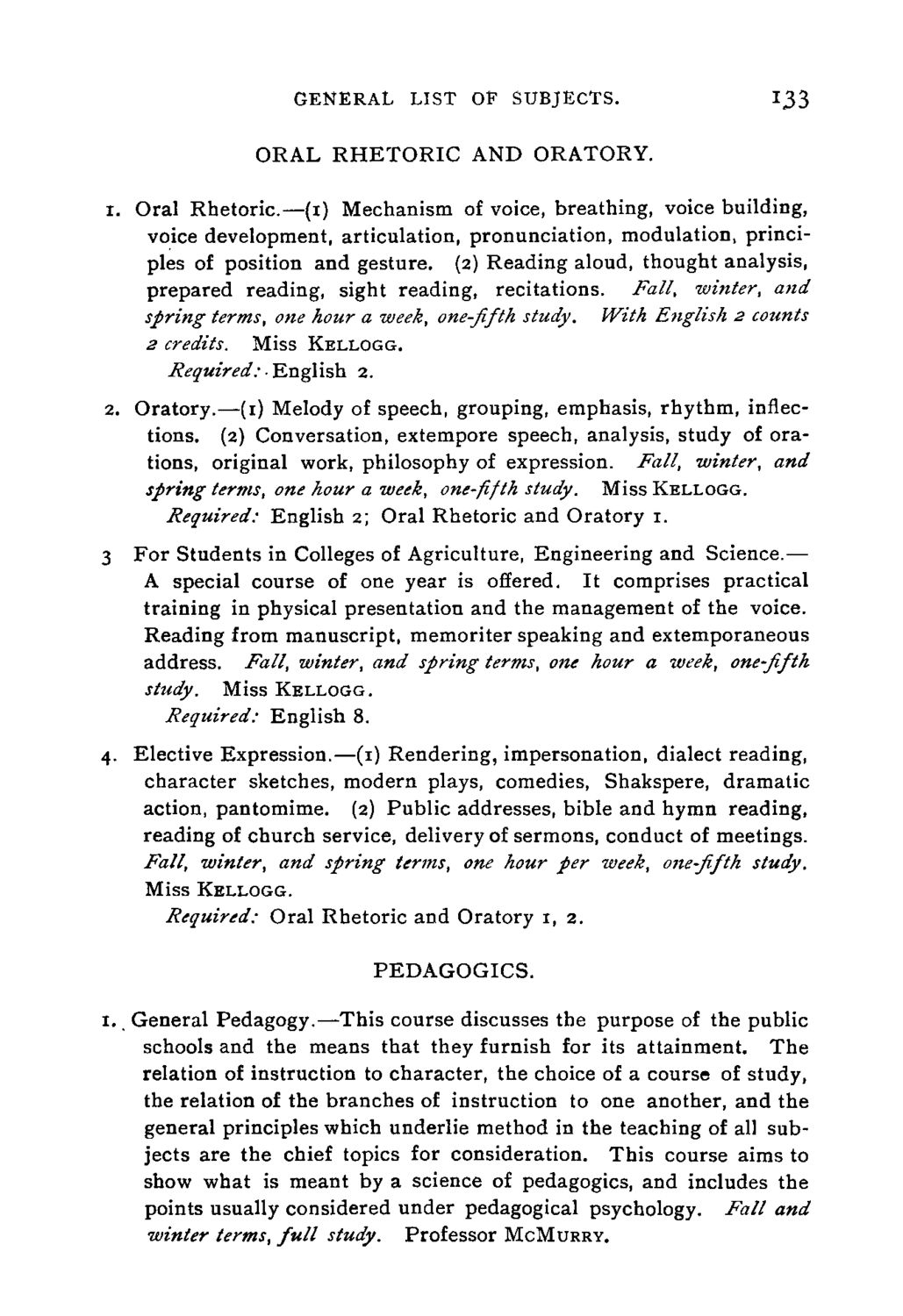| |
| |
Caption: Course Catalog - 1893-1894
This is a reduced-resolution page image for fast online browsing.

EXTRACTED TEXT FROM PAGE:
GENERAL LIST OP SUBJECTS. ORAL RHETORIC AND ORATORY. 133 1. Oral Rhetoric.—(1) Mechanism of voice, breathing, voice building, voice development, articulation, pronunciation, modulation, principles of position and gesture. (2) Reading aloud, thought analysis, prepared reading, sight reading, recitations. Fall, winter, and spring terms, one hour a week, one-fifth study. With English 2 counts 2 credits. Miss KELLOGG. Required: • English 2. 2. Oratory.—(1) Melody of speech, grouping, emphasis, rhythm, inflections. (2) Conversation, extempore speech, analysis, study of orations, original work, philosophy of expression. Fall, winter, and spring terms, one hour a week, one-fifth study. Miss KELLOGG. Required: English 2; Oral Rhetoric and Oratory 1. 3 For Students in Colleges of Agriculture, Engineering and Science.— A special course of one year is offered. It comprises practical training in physical presentation and the management of the voice. Reading from manuscript, memoriter speaking and extemporaneous address. Fall, winter, and spring terms, one hour a week, one-fifth study. Miss KELLOGG. Required: English 8. 4. Elective Expression.—(1) Rendering, impersonation, dialect reading, character sketches, modern plays, comedies, Shakspere, dramatic action, pantomime. (2) Public addresses, bible and hymn reading, reading of church service, delivery of sermons, conduct of meetings. Fall, winter, and spring terms, one hour per week, one-fiftk study. Miss KELLOGG. Required: Oral Rhetoric and Oratory 1, 2. PEDAGOGICS. 1. General Pedagogy.—This course discusses the purpose of the public schools and the means that they furnish for its attainment. The relation of instruction to character, the choice of a course of study, the relation of the branches of instruction to one another, and the general principles which underlie method in the teaching of all subjects are the chief topics for consideration. This course aims to show what is meant by a science of pedagogics, and includes the points usually considered under pedagogical psychology. Fall and winter terms, full study. Professor MCMURRY.
| |